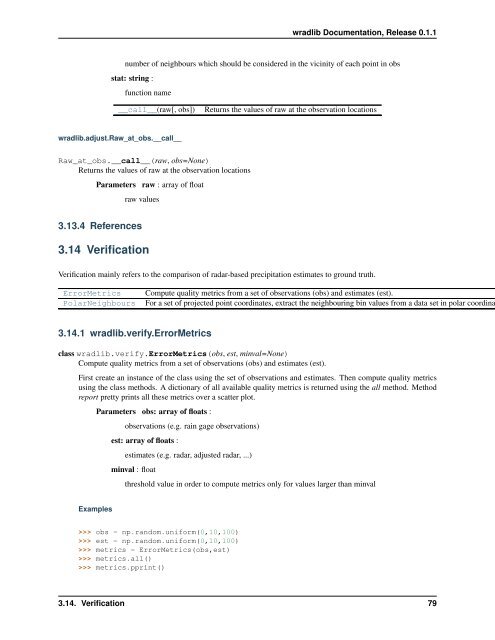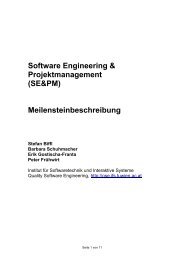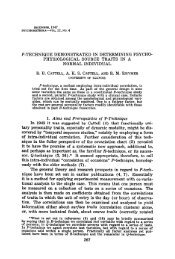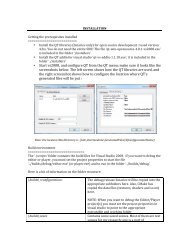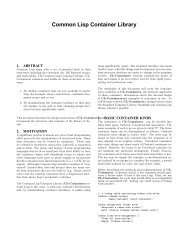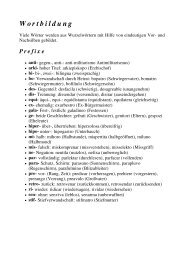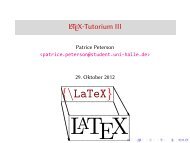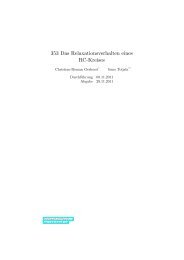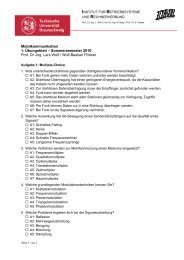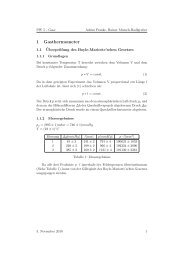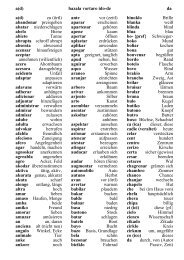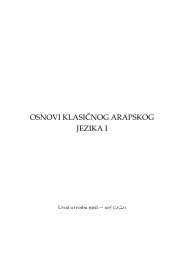wradlib Documentation - Bitbucket
wradlib Documentation - Bitbucket
wradlib Documentation - Bitbucket
Create successful ePaper yourself
Turn your PDF publications into a flip-book with our unique Google optimized e-Paper software.
<strong>wradlib</strong> <strong>Documentation</strong>, Release 0.1.1<br />
number of neighbours which should be considered in the vicinity of each point in obs<br />
stat: string :<br />
function name<br />
__call__(raw[, obs])<br />
Returns the values of raw at the observation locations<br />
<strong>wradlib</strong>.adjust.Raw_at_obs.__call__<br />
Raw_at_obs.__call__(raw, obs=None)<br />
Returns the values of raw at the observation locations<br />
Parameters raw : array of float<br />
raw values<br />
3.13.4 References<br />
3.14 Verification<br />
Verification mainly refers to the comparison of radar-based precipitation estimates to ground truth.<br />
ErrorMetrics<br />
PolarNeighbours<br />
Compute quality metrics from a set of observations (obs) and estimates (est).<br />
For a set of projected point coordinates, extract the neighbouring bin values from a data set in polar coordina<br />
3.14.1 <strong>wradlib</strong>.verify.ErrorMetrics<br />
class <strong>wradlib</strong>.verify.ErrorMetrics(obs, est, minval=None)<br />
Compute quality metrics from a set of observations (obs) and estimates (est).<br />
First create an instance of the class using the set of observations and estimates. Then compute quality metrics<br />
using the class methods. A dictionary of all available quality metrics is returned using the all method. Method<br />
report pretty prints all these metrics over a scatter plot.<br />
Parameters obs: array of floats :<br />
observations (e.g. rain gage observations)<br />
est: array of floats :<br />
estimates (e.g. radar, adjusted radar, ...)<br />
minval : float<br />
threshold value in order to compute metrics only for values larger than minval<br />
Examples<br />
>>> obs = np.random.uniform(0,10,100)<br />
>>> est = np.random.uniform(0,10,100)<br />
>>> metrics = ErrorMetrics(obs,est)<br />
>>> metrics.all()<br />
>>> metrics.pprint()<br />
3.14. Verification 79


